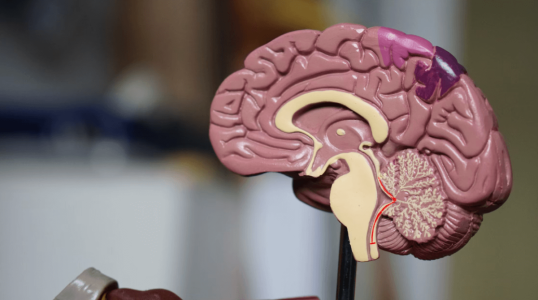Could your TV-watching habits impact your cognitive function?
- Replies 17
We all know that physical activity and mental stimulation are vital for keeping our brains sharp and to protectg against dementia. But what about those activities that involve more sitting than learning? Enter television - a common pastime among Australians of all ages.
In recent years, as social media, Netflix, and other digital entertainment platforms have gained popularity among younger generations, television viewership among older adults remains steadfast.
But what does science have to say about TV's impact on cognitive health in ageing populations? The answer may surprise you
Researchers have delved into this topic, grappling with inconsistent findings that have made it challenging to draw definitive conclusions.
However, a groundbreaking 2019 study shed new light on the issue, revealing that watching television for more than 3.5 hours a day could be linked to memory decline and language difficulties in older adults.
This begs the question: Could it be that TV is directly responsible for deteriorating mental capacity in older adults, or is it simply a case of those with early-stage dementia spending more time in front of the screen out of boredom?
Adding to the puzzle is recent research that has turned the tables on conventional wisdom. A study published just last year explored the relationship between TV and computer use and the risk of dementia among older individuals — and the findings were nothing short of intriguing.
The study revealed that watching more than 4 hours of television a day was associated with a staggering 24% higher risk of developing dementia. In contrast, those who engaged in interactive computer use for leisure, spending more than 1 hour daily, had a remarkably 15% lower risk of cognitive decline.
Renowned dementia expert, Professor Henry Brodaty, offers a cautionary note on the potential link between television and dementia.
While studies have shed light on the association between TV viewing and cognitive decline in older adults, Professor Brodaty urges against placing undue reliance on TV as a sole factor.

According to the expert, there are likely to be deeper driving factors at play, beyond television, that contribute to the risk of dementia. Poor nutrition, lack of physical activity, and other lifestyle factors may also have a significant impact on cognitive health.
In light of this, Professor Brodaty emphasises the importance of maintaining a holistic approach to brain health.
Staying physically active, eating a healthy diet, and engaging in intentional activities that challenge the mind, such as reading news articles or solving crossword puzzles (like the ones on the SDC website!), can all play a crucial role in promoting cognitive well-being.
Furthermore, Professor Brodaty highlights the value of social connections and community engagement, both online and offline. Spending quality time with loved ones and participating in activities that foster social interaction can be beneficial for brain health as well.

Did you know that over 400,000 Australians are living with dementia? Shockingly, two-thirds of them are women.
But fear not, as renowned Professor Ralph Martins from Macquarie University is leading the charge in a groundbreaking new trial that could change the game for dementia prevention.

Professor Martins envisions a future where medication and lifestyle changes could become powerful tools in preserving the brain, just like how cholesterol is managed to protect the heart.
With 600 volunteers recruited for his cutting-edge study, the potential for a breakthrough is within reach. Want to know more? Check out our report on this development by clicking here.
As science continues to uncover the complex relationship between TV viewing and brain health, it's clear that the impact goes beyond just passive entertainment.
With intriguing studies revealing potential links between excessive TV watching and cognitive decline in older adults, it's essential to consider the broader context of lifestyle factors, such as nutrition, physical activity, and mental stimulation.
Members, how much TV do you watch in a day? Are you taking proactive steps to safeguard your brain health? Share your thoughts and experiences with us in the comments!
In recent years, as social media, Netflix, and other digital entertainment platforms have gained popularity among younger generations, television viewership among older adults remains steadfast.
But what does science have to say about TV's impact on cognitive health in ageing populations? The answer may surprise you
Researchers have delved into this topic, grappling with inconsistent findings that have made it challenging to draw definitive conclusions.
However, a groundbreaking 2019 study shed new light on the issue, revealing that watching television for more than 3.5 hours a day could be linked to memory decline and language difficulties in older adults.
This begs the question: Could it be that TV is directly responsible for deteriorating mental capacity in older adults, or is it simply a case of those with early-stage dementia spending more time in front of the screen out of boredom?
Adding to the puzzle is recent research that has turned the tables on conventional wisdom. A study published just last year explored the relationship between TV and computer use and the risk of dementia among older individuals — and the findings were nothing short of intriguing.
The study revealed that watching more than 4 hours of television a day was associated with a staggering 24% higher risk of developing dementia. In contrast, those who engaged in interactive computer use for leisure, spending more than 1 hour daily, had a remarkably 15% lower risk of cognitive decline.
Renowned dementia expert, Professor Henry Brodaty, offers a cautionary note on the potential link between television and dementia.
While studies have shed light on the association between TV viewing and cognitive decline in older adults, Professor Brodaty urges against placing undue reliance on TV as a sole factor.

Some studies suggest that watching a lot of television can increase your risk of cognitive decline. Credit: Unsplash/CardMapr.nl.
According to the expert, there are likely to be deeper driving factors at play, beyond television, that contribute to the risk of dementia. Poor nutrition, lack of physical activity, and other lifestyle factors may also have a significant impact on cognitive health.
In light of this, Professor Brodaty emphasises the importance of maintaining a holistic approach to brain health.
Staying physically active, eating a healthy diet, and engaging in intentional activities that challenge the mind, such as reading news articles or solving crossword puzzles (like the ones on the SDC website!), can all play a crucial role in promoting cognitive well-being.
Furthermore, Professor Brodaty highlights the value of social connections and community engagement, both online and offline. Spending quality time with loved ones and participating in activities that foster social interaction can be beneficial for brain health as well.
Key Takeaways
- TV viewing in older adults has been linked to cognitive decline and increased risk of dementia, but renowned dementia expert Professor Brodaty cautions against solely attributing this to TV alone.
- Poor nutrition, lack of physical activity, and other lifestyle factors may also play a role in cognitive health and should be considered in a holistic approach.
- Professor Brodaty emphasises the importance of engaging in intentional brain-boosting activities, fostering social connections, and taking a multifaceted approach to safeguard brain health.
Did you know that over 400,000 Australians are living with dementia? Shockingly, two-thirds of them are women.
But fear not, as renowned Professor Ralph Martins from Macquarie University is leading the charge in a groundbreaking new trial that could change the game for dementia prevention.

It's important to aim for regular physical exercise and healthy eating to keep your mind sharp.Credit: Unsplash/Robina Weermeijer.
Professor Martins envisions a future where medication and lifestyle changes could become powerful tools in preserving the brain, just like how cholesterol is managed to protect the heart.
With 600 volunteers recruited for his cutting-edge study, the potential for a breakthrough is within reach. Want to know more? Check out our report on this development by clicking here.
As science continues to uncover the complex relationship between TV viewing and brain health, it's clear that the impact goes beyond just passive entertainment.
With intriguing studies revealing potential links between excessive TV watching and cognitive decline in older adults, it's essential to consider the broader context of lifestyle factors, such as nutrition, physical activity, and mental stimulation.
Members, how much TV do you watch in a day? Are you taking proactive steps to safeguard your brain health? Share your thoughts and experiences with us in the comments!








